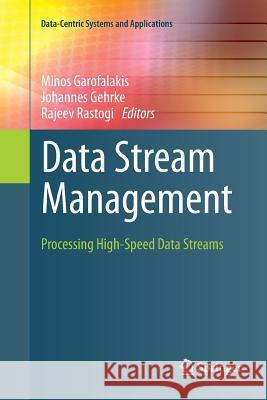Data Stream Management: Processing High-Speed Data Streams » książka
topmenu
Data Stream Management: Processing High-Speed Data Streams
ISBN-13: 9783662568378 / Angielski / Miękka / 2018 / 537 str.
Kategorie:
Kategorie BISAC:
Wydawca:
Springer
Seria wydawnicza:
Język:
Angielski
ISBN-13:
9783662568378
Rok wydania:
2018
Wydanie:
Softcover Repri
Ilość stron:
537
Waga:
0.75 kg
Wymiary:
23.39 x 15.6 x 2.82
Oprawa:
Miękka
Wolumenów:
01
Dodatkowe informacje:
Wydanie ilustrowane











